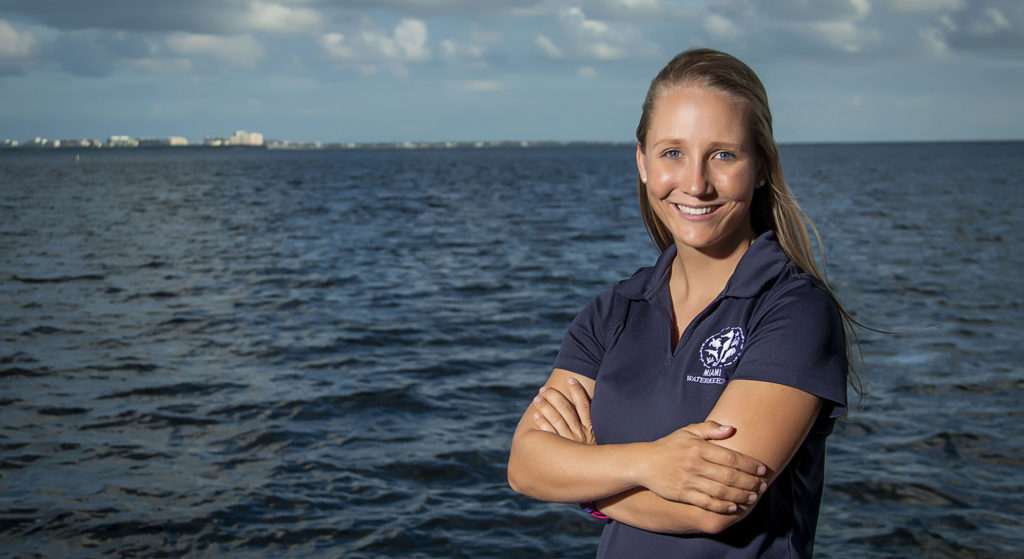
During her time at NC State, Kelly Cox ’13 decided to switch majors from zoology to natural resources and political science. At the time, she did not know she wanted to practice environmental law, but she knew she wanted to wear Chacos to work. Today, Cox is a fierce advocate for South Florida’s watershed as general counsel for Miami Waterkeeper – a nonprofit organization dedicated to defending everyone’s right to use and enjoy clean water.
Cox first became interested in environmental law and policy after collecting leaf data during an internship with the U.S. Forest Service. What she describes as “spending a summer in the woods counting leaves” proceeded to inform state-level policy on forest management in North Carolina and helped clarify for Cox the type of role she wanted in her professional career. Later, as she was working on joint law and master’s degrees at the University of Miami, Kelly interned with the City of Miami. “I knew at that point that I wanted to build a career in a space and with people that could effectuate positive change in my community by relying on sound science and good law,” Cox says. She found that space at Miami Waterkeeper shortly after taking the bar exam.
As the general counsel for Miami Waterkeeper, Cox oversees a staff of four and leads the organization’s legal advocacy efforts on marine ecosystem protection, clean water advocacy, and sea-level rise readiness. Especially gratifying for her is winning “David vs. Goliath battles.” A few years ago, Miami Waterkeeper confirmed a sewage leak that had not been fixed by the government for over a year. She and her co-counsel took legal action, and, over the next few days, the leak was fixed. These victories remind her of the famous Margaret Mead quote: “Never doubt that a small group of thoughtful, committed citizens can change the world; indeed, it’s the only thing that ever has.”
In 2017, just one year into her career, Cox began teaching environmental law and policy as an adjunct professor at the University of Miami’s Rosenstiel School of Marine and Atmospheric Science. She educates and inspires her students while having the opportunity to research ever-changing environmental issues. So far, she has published works on a range of topics including invasive aquatic species, marine zoning, and listed species protection.

Cox says the Park Scholarships program’s impact on her life is ongoing. “Every twist and turn of my experience involves a Park event, Park classmate, Park opportunity, Park mentor, or Park connection. It is because of this program that I was able to attend NC State, it is because of this program I took the path I did, and it is with the support of this program that I am where I am today. I’m very grateful for my time as a Park Scholar, and it has had a meaningful and lasting impact on my life.”
Her advice to Park Scholars is to be intentional about how you choose to spend your time. “Just because you can do something, doesn’t mean you should. If you aren’t finding happiness in the spaces you occupy – academic, service, or leadership – don’t be afraid to switch things up. The benefit of having this incredible community of support is having the privilege to take some risks. Branch out, take a new class, invite a new friend to your tailgate, meet a new professor, take an internship in a new area, and definitely, definitely go on an Outdoor Adventures trip.”